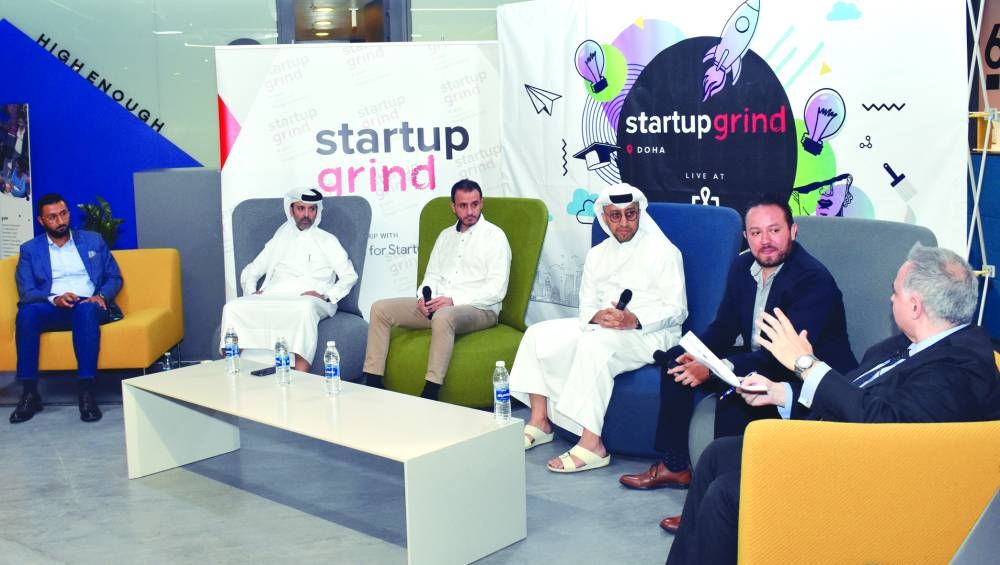A panel of experts has dissected Qatar’s evolving startup ecosystem to help shed light on the challenges and solutions needed to propel the country’s entrepreneurship culture during Startup Grind Qatar’s recent event titled ‘How can the ecosystem create value to enable startups to scale in Qatar?’
The panel discussion, which was moderated by Firas Sleiman, founder/CEO and chief AI officer at TEN.Ai., highlighted the insights of Hamad Mubarak al-Hajri, founder and CEO of Snoonu; Dr Allan Villegas-Mateos, senior research fellow of Entrepreneurship and Innovation at HEC Paris, Qatar; Nayef al-Ibrahim, founding partner and CEO of Ibtechar; Georges Fouad Salem, senior manager - Business Incubation & Acceleration, Qatar Development Bank (QDB); and Mohamed Shahin, TASMU Accelerator manager.
Al-Hajri lauded the efforts of the Qatari government for providing the country’s business environment with a “very good” legal framework, as well as entities that are supportive of startups like the Qatar Science and Technology Park (QSTP), among others. He said QSTP and similar entities have helped make Qatar an attractive destination for global entrepreneurs looking to start their businesses.
On the other hand, he also raised other challenges, such as registration processes that are time-consuming compared to other countries in the region. Despite this, al-Hajri suggested that improving automation could significantly streamline the process, saying that “speed is a critical issue.” By addressing this concern, he believes that Qatar can further enhance its appeal as a global business hub.
Similarly, Villegas-Mateos shared other challenges for setting up a business in Qatar, especially for non-Arabic speakers. He said the numerous visits to the ministries and the possible need to translate documents are, likewise, time-consuming. He also emphasised that the country would benefit from efforts to market Qatar globally and to promote the added value for businesses looking to expand into the region.
Shahin underscored that Qatar is fostering a vibrant startup ecosystem. Citing the government’s TASMU Accelerator Programme, he said this initiative is bringing global innovations to Qatar to establish their businesses, expand to the market, and create job opportunities.
He said attracting global startups to Qatar would enhance the quality and competitiveness of the private sector and encourage more spin-offs and entrepreneurs. Shahin also noted that TASMU is collaborating with different parties in the country, especially the Ministry of Commerce and Industry (MoCI) to facilitate and support startups in Qatar.
Shahin stressed that Qatar’s public and private sectors are essential to support the country’s startup ecosystem, specifying the roles of the public sector in setting the legislation, framework, and policy, and the private sector in increasing the adoption rate and bridging the trust gap.
Meanwhile, Salem emphasised that there is optimism in the evolving legal framework in Qatar, which is significantly favouring the development of startups and creating a more conducive environment for their growth. According to Salem, Qatar ranks as one of the top jurisdictions at the GCC level, placing it either “second or third,” which underscores Qatar’s commitment to fostering a robust startup ecosystem.
Al-Ibrahim, for his part, shared insights on how the private sector can fuel innovation in the ecosystem. He believes that three main components are crucial for this process: the right scripts, the right tools, and the right forces. By having these components in place, he is confident that innovation within the ecosystem can be fuelled effectively.
Citing the achievements of Snoonu in Qatar, al-Ibrahim also highlighted the importance of success stories in sending signals of hope for the ecosystem and driving it forward. He added that the private sector plays a pivotal role in creating these success stories, which could play a significant role in shaping the future of innovation in Qatar.

The panel of experts during Startup Grind Qatar’s recent event titled ‘How can the ecosystem create value to enable startups to scale in Qatar?’ PICTURE: Thajudheen

